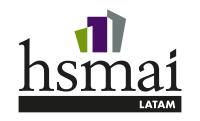By Megan Becker, Manager of Hiring and Training, Reservations, Hershey Entertainment & Resorts Company, Vice Chair of the Steering Committee of HSMAI Contact Center.
Stephanie Davis, Team Leader, Sales Support, Accor, Steering Committee Member, HSMAI Contact Center SIG.
During an HSMAI Contact Center SIG session focused on Team Dynamics, Agents, and Operational Excellence, industry professionals, including representatives from Hershey Entertainment & Resorts, Accor, IHG, Rosewood Hotels & Resorts, and others, shared experiences, challenges, and strategies for managing contact centers efficiently. Discussions covered agent engagement, Quality Assurance (QA) practices, and operational workflow optimization.
1. Evolution of Quality Assurance (QA) Practices
One of the participants of the NEXT presented an innovative approach to Quality Assurance, highlighting the concept of the “Art of Interaction”Instead of relying exclusively on rigid checklists, a more flexible evaluation system was introduced based on the following principles:
- Art of Listening: Ensure agents genuinely understand and respond to guests' needs, avoiding assumptions.
- Art of Simplicity: Keep interactions clear and direct, without overwhelming guests with unnecessary information.
- Art of Advocacy: Motivate agents to seek proactive solutions that benefit customers.
This approach seeks to replace checklist-based assessments with a more comprehensive analysis, promoting better guest experiences.
2. Balancing Revenue Generation with Quality of Service
One participant highlighted the challenge of balancing high revenue generation results with the quality of interactions. It was mentioned that some of the best-performing agents in revenue generation may be underperforming on non-sales-related calls.
To address this, the importance of integrating quality metrics with revenue incentives was highlighted, ensuring agents maintain focus on both aspects. Another participant expressed the same concern, noting that some excel at revenue generation but struggle with interactions that don't generate bookings, which impacts overall service quality.
3. Innovative Engagement and Coaching Strategies
The implementation of a Career Development Hub, which includes life-changing videos and skills development resources, was highlighted as a successful initiative. This platform allows agents to take control of their careers and foster their professional growth.
Other organizations shared approaches such as cross-training and standardized coaching. One company developed a unified coaching framework to align practices across teams, while another implemented cross-coaching, allowing agents to observe and learn from other departments.
4. Facing Scale Challenges in Small Contact Centers
Managing schedules, especially during less desirable shifts such as nights and weekends, is a challenge for smaller contact centers. Some strategies discussed include:
- Hiring Part-Time Agents: : Onboard agents to cover specific schedules, allowing full-time agents to maintain their preferred hours.
- Night Additional: Offer additional compensation for less desirable shifts, although this strategy has had limited success in reducing turnover.
- Flexible Schedules and Multi-Skilled Agents: Train agents to handle multiple accounts and shifts, ensuring coverage without overloading the permanent team.
5. Leveraging Technology for Compliance and Efficiency
One participant discussed the importance of maintaining PCI compliance by avoiding direct handling of credit card data during reservations. Although this practice is essential, it has raised concerns about reservation security and potential increases in cancellation rates. To mitigate these issues, organizations are exploring AI-based solutions to streamline processes, improve the compliance and ensure an efficient customer experience.
Main Lessons Learned
- Transform QA Practices: Replace rigid checklists with more flexible, interaction-focused evaluation systems.
- Balance Metrics: Integrate service quality with revenue incentives to evaluate performance more comprehensively.
- Promotes Professional Growth: Implement Career Development Hubs and cross-training programs.
- Optimize Schedules: Use part-time agents, shift incentives, and multi-skilled teams to overcome scaling challenges.
- Ensures Compliance: Invest in AI technology and solutions to improve compliance and operational efficiency.



